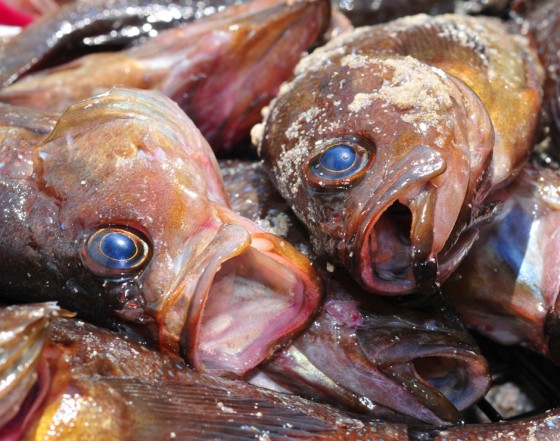 Sporadic street violence, economic distress and political polarization were mostly put on ice this past Sunday as Egyptians of all classes and religions held picnics, took boat rides on the Nile and celebrated Sham el-Nessim, a holiday whose roots most believe date back to this land’s ancient inhabitants. The event features a stinky fish.On Sham el-Nessim urban Egyptians compete for every patch of grass, setting up picnics to commemorate an ancient vernal holiday with a special holiday meal. The festival was originated by the pharaohs, and the name translates to “smelling the breeze”.But best to hold your breath near the day’s trademark dish.“It’s terrible!”, Muhammad Shaaban told The New York Times, kicking back with his clan under a tree in a Cairo park. He was referring to feseekh, a heavily salted, aged fish that even fans agree smells more like garbage than food.
Sporadic street violence, economic distress and political polarization were mostly put on ice this past Sunday as Egyptians of all classes and religions held picnics, took boat rides on the Nile and celebrated Sham el-Nessim, a holiday whose roots most believe date back to this land’s ancient inhabitants. The event features a stinky fish.On Sham el-Nessim urban Egyptians compete for every patch of grass, setting up picnics to commemorate an ancient vernal holiday with a special holiday meal. The festival was originated by the pharaohs, and the name translates to “smelling the breeze”.But best to hold your breath near the day’s trademark dish.“It’s terrible!”, Muhammad Shaaban told The New York Times, kicking back with his clan under a tree in a Cairo park. He was referring to feseekh, a heavily salted, aged fish that even fans agree smells more like garbage than food.
But don’t talk no trash about his smelly fish. “It’s an Egyptian tradition that’s been with us for 7,000 years,” he said. “We’re used to it.”
Waiting for his order in a downtown fish shop, Maher Dahab said, “Feseekh is Egyptian, and the ancients taught us how to make it. They built the pyramids, and they made feseekh.”
The persistent popularity of both the odorous entree and the holiday point to Egypt’s millenium-long history, which, in turn, underpins its powerful sense of national identity, unique in the Arab world. That’s a unifying factor in unstable times; this holiday is celebrated by all religions, all classes, and it crosses party lines.
Conservative television preachers have tagged Sham el-Nessim as pagan holiday, but Egypt’s most prominent Islamist parties haven’t voiced opposition.
“It’s an Egyptian tradition that we’ve all become accustomed to,” said Gehad el-Haddad, a senior official with the Muslim Brotherhood, the dominant party in Parliament.
Muhammad Emara, a member of the executive council of the ultraconservative Nour Party, said, “We don’t get involved in Egyptian traditions.”
Government warnings about the dangers of eating uncooked, petrified fish have done nothing to quell demand.
According to Egyptian Health Ministry statistics, bad feseekh poisoned 49 people and killed 9 more in 2007; sickened 26 and knocked off another 4 in 2008; and in each of the next two years, poisoned over a dozen and killed two. The fish is a bona fide health risk that can cause complete paralysis or death.
Abdel-Nabi Shahin, perhaps Cairo’s most famous feseekh seller, shrugged when asked about the warnings.
“There are cheaters who give us a bad image,” he said, “Some have dirty fingernails or don’t wash their hands before they work with the fish.”
The job, he said, requires “cleanliness and vigilance.”
Shahin is the third-generation owner of the family business, which now has two stores that draw customers from far away seeking fish they can trust.
The process has changed little over the years, Shahin said. He starts with fresh mullet caught in the Mediterranean, which is washed but left intact, guts and all.
It is packed in salt in wood barrels and left to sit for 45 days. After that, it is good to eat for six months, Shahin said.
A kilogram of Shahin’s feseekh (about 2.2 pounds) goes for about $13, nearly twice what it cost last year because of a fish shortage, according to The New York Times.
Image of dead fish from Maxim Tupikov /Shutterstock



